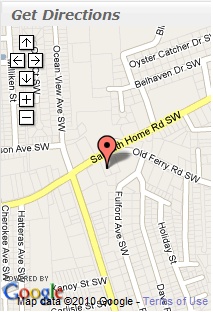North Carolina Domestic Violence FAQ’s
- What options are available for domestic violence relief?
- How long do domestic orders last?
- How can I prepare for my domestic violence case?
- What happens if I just leave the house?
- Are there residency requirements for filing a domestic violence action?
- What is a domestic violence ex parte order?
- What if I feel I’m in immediate and serious danger?
There are several orders which the courts can grant. These include ex parte (emergency), order upon motion and hearing, and a final order. Through these orders, the judge could allow:
- The aggrieved party to take possession of the residence and exclude the other spouse from the premises
- Evicting the spouse and allowing the aggrieved party back into the residence
- Requiring the spouse to provide alternate housing for the aggrieved party
- Support payments to be given for the spouse and/or children
- The spouse to pay attorney fees for the aggrieved party
- Possession of personal property for the aggrieved spouse
- To cease any violent or harassing acts toward the aggrieved party
The judge may also grant any protective order he deems necessary.
Occasionally a judge will also grant temporary child custody, and award visitation, though usually those decisions are made outside of domestic violence cases.
Protective orders will expire after a certain period of time. No protective order can last for more than one year. At the end of the year, you may request renewal of the order for another year. Copies of the order must be issued to both parties and the local law enforcement where the aggrieved party resides. It is yours, and your attorney’s responsibility to get copies of the protective order to the police department.
Be prepared with the facts surrounding your case. Make sure you have any police reports, medical records, pictures, and any other evidence which supports your claim. The more specific you can be regarding incidents, and what happened, the better. Also, be ready to express the fear and intimidation you felt.
If at all possible, it’s best to remain in the home until you’ve spoken with an attorney. There are several reasons for this. One is that, should you leave, you may not be able to reenter the home or get your possessions back until after equitable distribution has been decided, which could take a while. It could also potentially affect your alimony situation. Finally, when property distribution is decided, you may not end up with possession of the residence.
That being said, your safety, and that of your children, is the most important thing, and you must take all steps necessary to protect yourself.
No. The law only states that the aggrieved party must be residing in North Carolina.
This is an order which is filed if a person feels that they, or their children, are in immediate danger of domestic violence. It is meant to protect them from such acts. A hearing must be held within 10 days of the date of issuance, or 7 days from the date of service on the other party, whichever occurs later. While temporary custody may be granted to the aggrieved party, it’s best to file this motion separate from any custody claims, as well as alimony or child support issues.
Call the police. Then, when you are safe, contact the Domestic Violence Relief agency in your county. They can provide information about safe shelters and provide other information about immediate assistance available to you.
You can also speak to an attorney about filing an emergency relief order.
.

